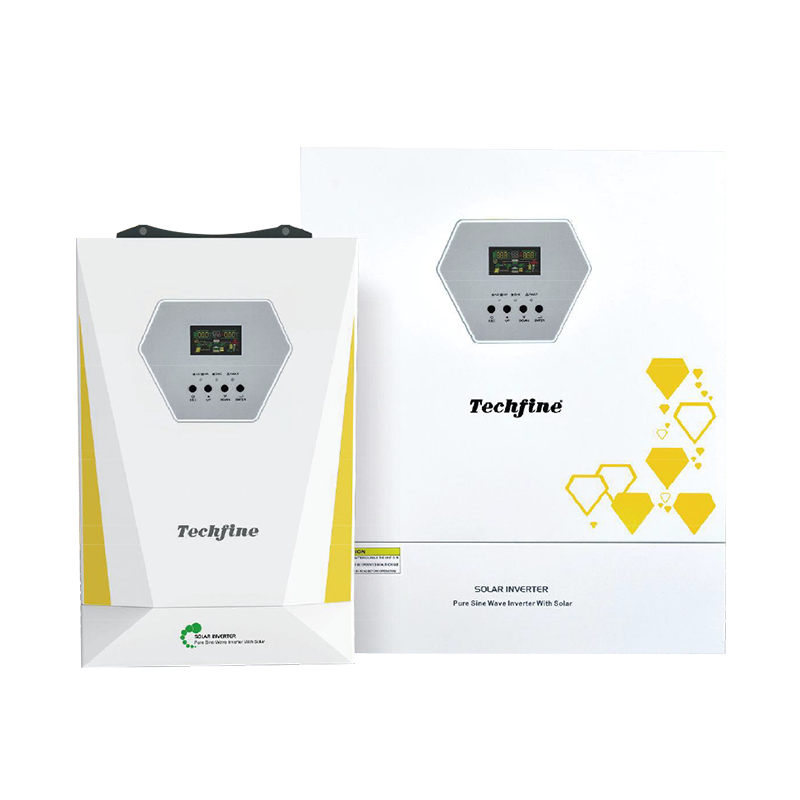
-
[email protected]

-
Building 1, No. 21 Shengfa Road, Lucheng District, Wenzhou, Zhejiang, China


Among the various types of inverters available, intelligent hybrid inverters, on-off grid hybrid solar inverters, and toroidal solar inverters offer unique benefits for users seeking to optimize their solar power sysems.
These inverters can optimize energy usage by automatically switching between the solar panels, battery storage, and the grid, depending on the current energy demand.
One of the key features of intelligent hybrid inverters is their ability to intelligently manage energy flows, ensuring that energy is used in the most efficient way possible. For instance, when there is excess energy being produced by the solar panels, it can be stored in batteries for later use, reducing the need to draw power from the grid. During times when solar generation is insufficient, the inverter can draw from the battery or the grid, depending on the settings.
Additionally, many intelligent hybrid inverters come with smart monitoring features that allow users to track energy production, consumption, and storage levels in real time through a mobile app or web portal. This level of control and data access provides users with greater insight into their energy usage, helping them to make more informed decisions about their energy consumption patterns.

An on-off grid hybrid solar inverter is designed to work in both grid-tied and off-grid configurations. This type of inverter provides flexibility by allowing users to connect to the electrical grid when it is available, while also ensuring that the system can operate independently (off-grid) during power outages or in remote areas where the grid is unavailable.
In an on-grid setup, the inverter converts the direct current (DC) electricity generated by the solar panels into alternating current (AC) electricity, which can be used to power a home or business. When excess energy is generated, it can be fed back into the grid, providing a source of income or reducing electricity bills through net metering programs.
In off-grid mode, the system relies on batteries to store excess energy generated during the day for use during the night or on cloudy days. This makes the on-off grid hybrid inverter a good option for locations where grid access is unreliable or unavailable, as it ensures energy supply continuity through battery storage.
This hybrid configuration offers the good of both worlds, combining the energy savings of grid-tied systems with the reliability of off-grid operation, making it ideal for areas with variable grid access or frequent power outages.
A toroidal solar inverter uses a toroidal transformer, which is a type of transformer that has a doughnut-shaped core. The use of a toroidal transformer in solar inverters offers several advantages over traditional transformers, primarily in terms of efficiency and size.
One of the main benefits of toroidal transformers is their higher efficiency. The toroidal design reduces energy loss, allowing for a more efficient conversion of DC to AC power. This is especially beneficial in solar applications, where energy efficiency is a priority. By reducing energy losses, toroidal inverters can provide more consistent and reliable performance, particularly in small or residential solar systems.
Another advantage of toroidal solar inverters is their compact and lightweight design. Toroidal transformers are smaller and more lightweight compared to traditional transformers, making them easier to integrate into solar inverters without significantly increasing the overall size or weight of the unit. This makes them an attractive option for residential solar installations or situations where space is limited.
Intelligent hybrid inverters provide advanced energy management and monitoring capabilities, ideal for users looking to efficiently manage their solar generation and energy storage. On-off grid hybrid inverters offer flexibility for both grid-connected and off-grid use, making them good for areas with unstable grid access.
Your email address will not be published. Required field are marked*
